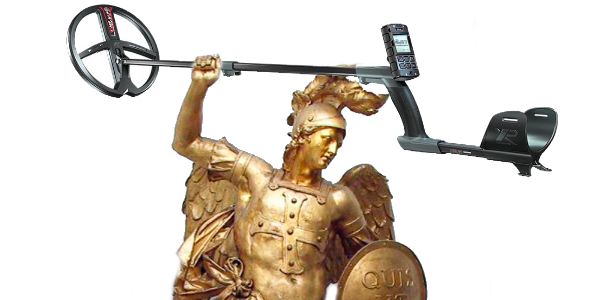
The flood of films about the advantage of DEUS I over DEUS II amused me a hundred times. Customers don’t know what to do… wait or buy?! In addition, there are also software updates, which cause a flood of extreme comments about the version that works and which does not. Complete confusion and chaos.
The first spline is a proven generation of metal detectors, we know all their advantages and disadvantages in everyday use. Model II is a great unknown, it would seem because multi-frequency technology is present in this model for the first time! Not completely. We have a MONO program where we can use DEUS II like its predecessor by selecting only single operating frequencies. We get two in one.
The new god of detectors works really well, and subsequent bugs are gradually corrected. This is not only the case for the French company XP, the competition is struggling with similar problems. Even domestic producers have found out that changing the software can be the key to success or total failure. The question is how much the hardware will allow us – i.e. the tripe of the detector. How good they are to meet the developer challenge.
For me, one thing is certain, DEUS I is by no means a thing of the past, but on the secondary market. The question is when XP will withdraw it from production and become an icon of sales portals like the old Whites models. We’ll see, meanwhile, it’s worth considering buying this detector, unfortunately, the price is an obstacle, over PLN 7,599 gross is an amount unavailable for many in Polish realities, even in the sphere of dreams.
So what does the new technology give and what does it change for the statistical Seeker? It’s simple, the device works more stably, is deeper, and in the case of a salty sea beach and highly mineralized clay, it allows you to reach deeper. For a lot of iron, hardware from France shines. Low and high conductors are signaled similarly confidently and unambiguously, which cannot be said about devices operating at one operating frequency. The above advantages will be useful in certain conditions and not everyone needs it, most users will be satisfied with much cheaper equipment, but there is one thing, but … Ergonomics and weight are unbeatable, the lack of cables also makes life easier, although DEUS II, like its predecessor, requires an experienced operator, or a lot of self-denial in learning the device.
If the assumptions described above are not met, it is worth getting interested in something simpler, because some functions require full understanding and, what is worse, they are permanently interconnected, which complicates the matter even more. Yes, it all takes time and patience, but it will certainly pay off in the future when others will have to give up.
